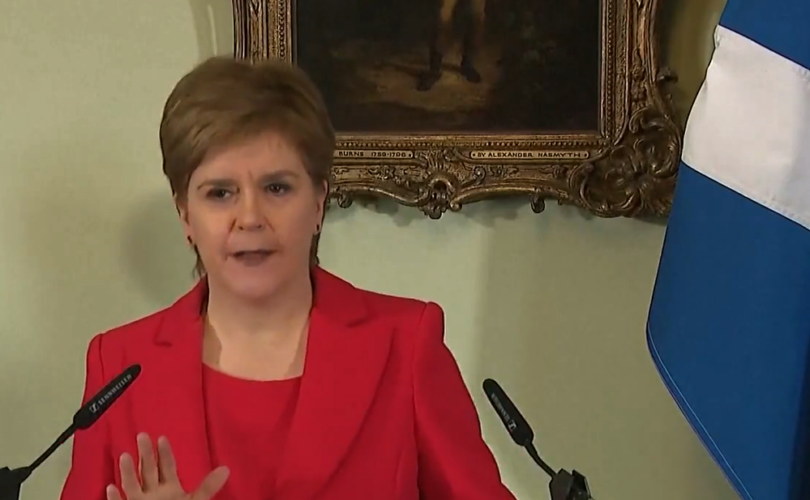Blog Post
The backlash to Nicola Sturgeon’s transgender agenda may have ended her career
By Jonathon Van Maren
Nicola Sturgeon of the Scottish National Party, who has been embroiled in controversy for months over her unpopular Gender Recognition Reform Bill and her radical transgender agenda, abruptly resigned February 15. Sturgeon had been facing intense criticism over the consequences of her transgender legislation, which included a male rapist being sent to a women’s prison.
Sturgeon, however, is insisting that her transgender agenda — which is opposed by a majority of Scottish people — is not the reason for her resignation, stating that the turmoil over the Gender Recognition Reform Bill was not the “final straw” and rather ironically stating that she was proud of having been Scotland’s “first female and longest-serving first minister.” Sturgeon had held the office for eight years.
In what most interpret as a veiled reference to the furor, Sturgeon stated, “I have been, and will always be, a feminist. But I will also stand up for any stigmatized, discriminated against, marginalized and vulnerable group in society.” Feminists such as J.K. Rowling, of course, have accused Sturgeon of being a “destroyer of women’s rights,” and the women locked behind bars with the brawny male rapists might beg to differ.
Despite her protestations to the contrary, most observers believe that Sturgeon decided to resign over the backlash to her trans agenda. Helen Lewis noted in The Atlantic that Sturgeon had ignored all critics of her radical law, insisting that it would have now downside — until it became obvious that those urging caution were correct:
And so she came under extreme pressure when, in January, the Scottish Prison Service sent a rapist to a women’s facility. Sturgeon overturned the agency’s decision, but not before many excruciating interviews where she seemed to imply there were three genders: man, woman, and sex offender. Isla Bryson “regards herself as a woman,” Sturgeon said last week, but “I regard the individual as a rapist.”
READ THE REST OF THIS COLUMN HERE








